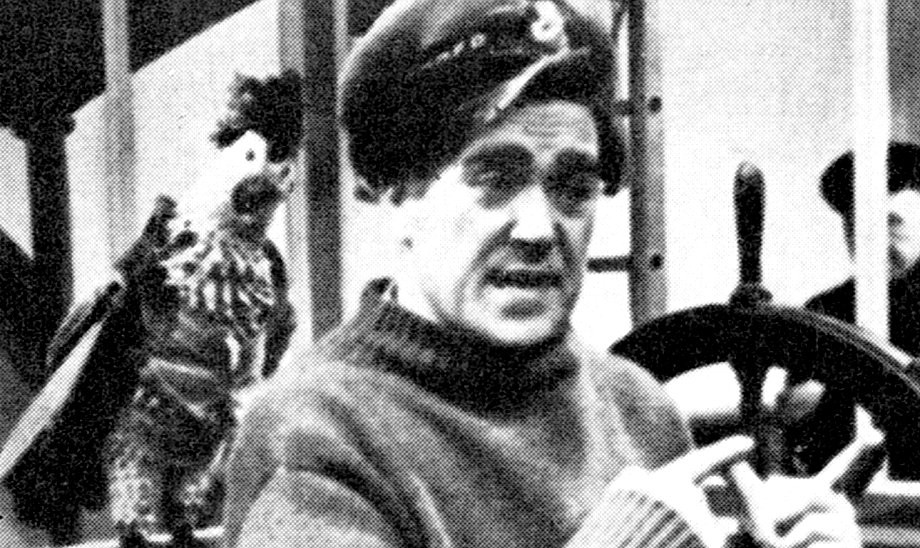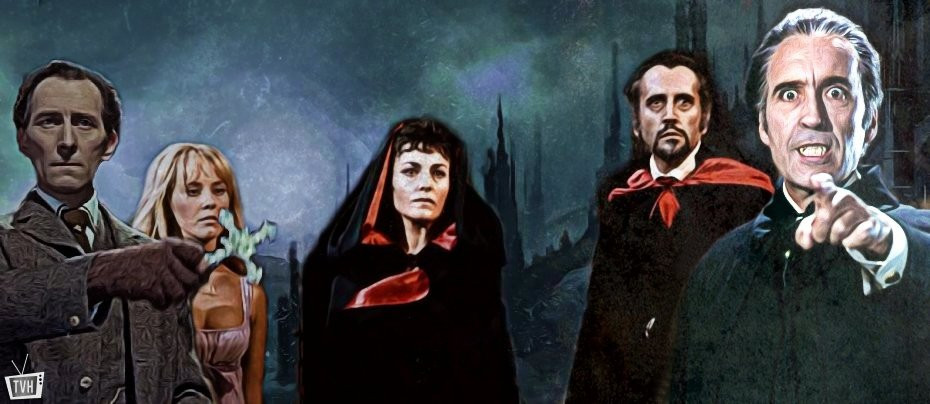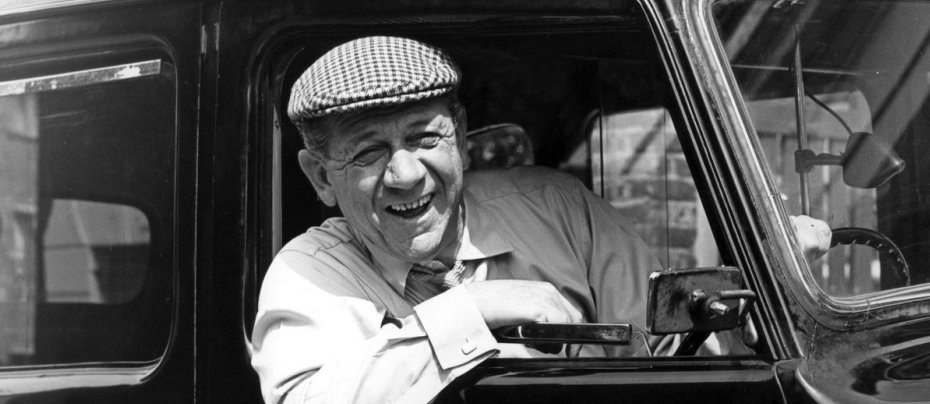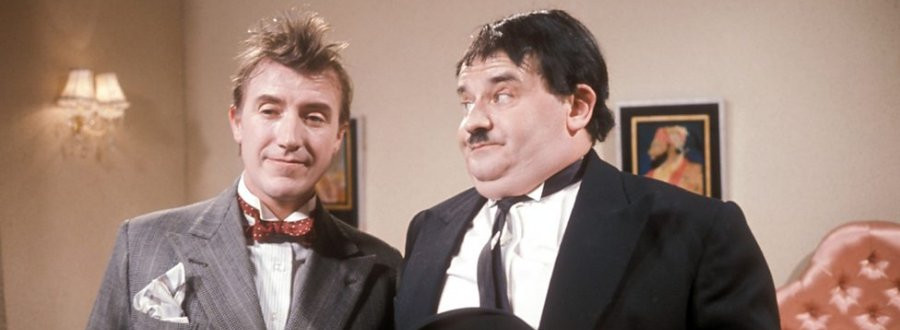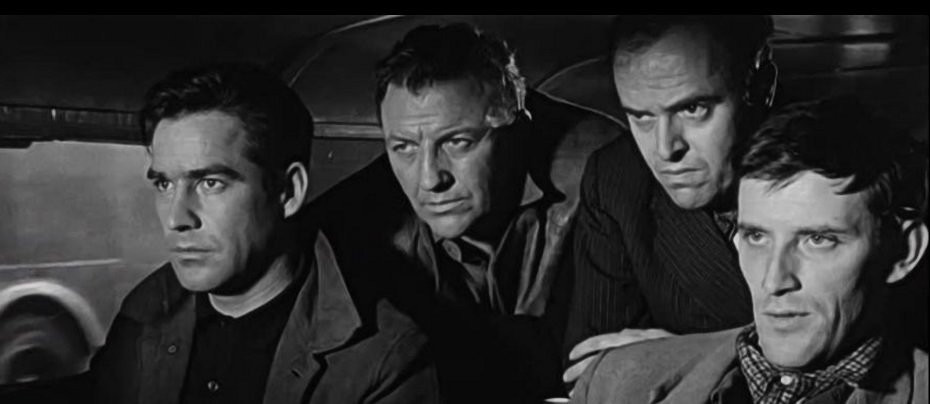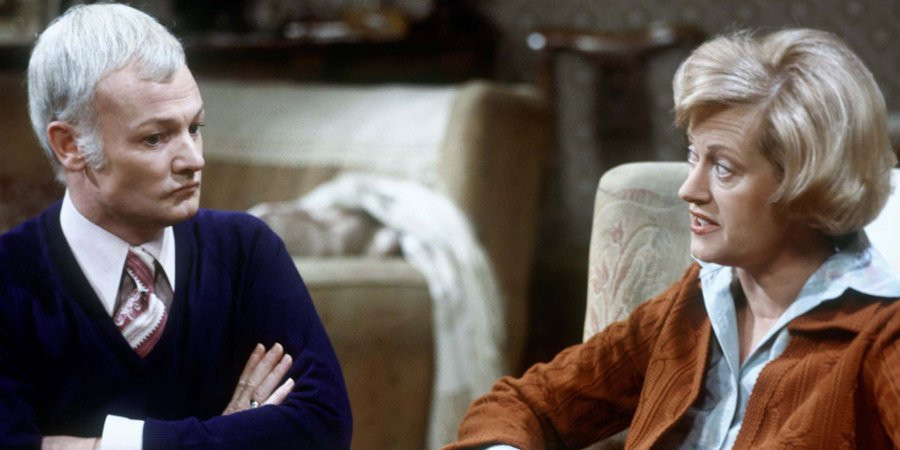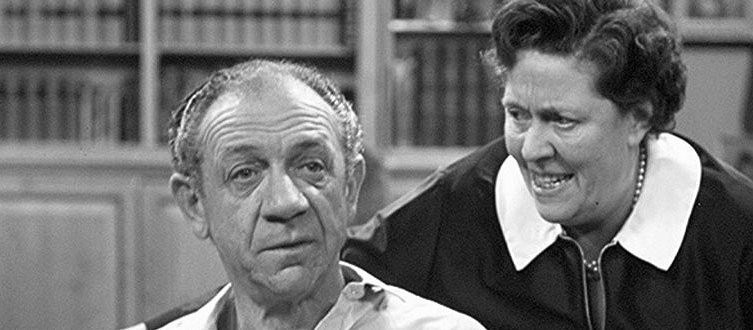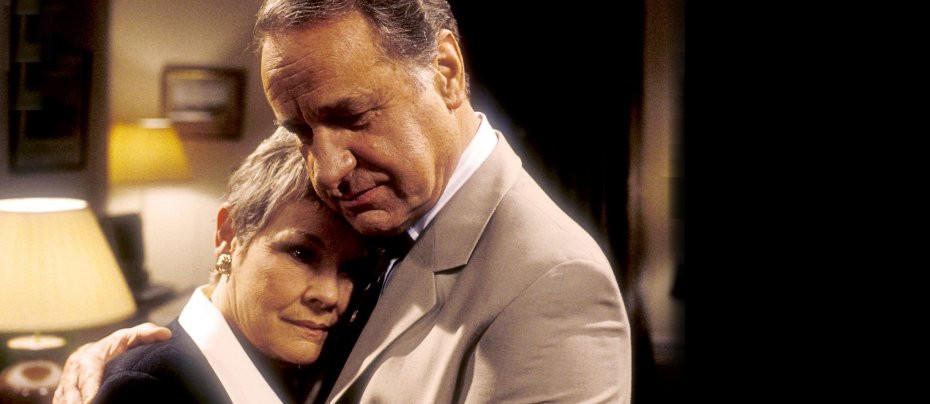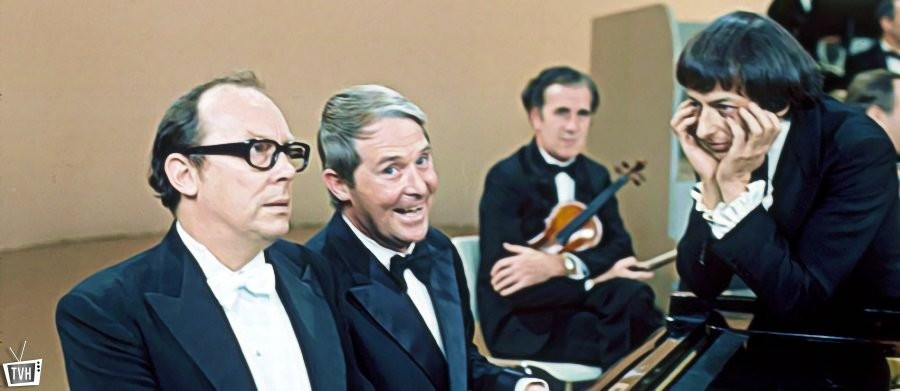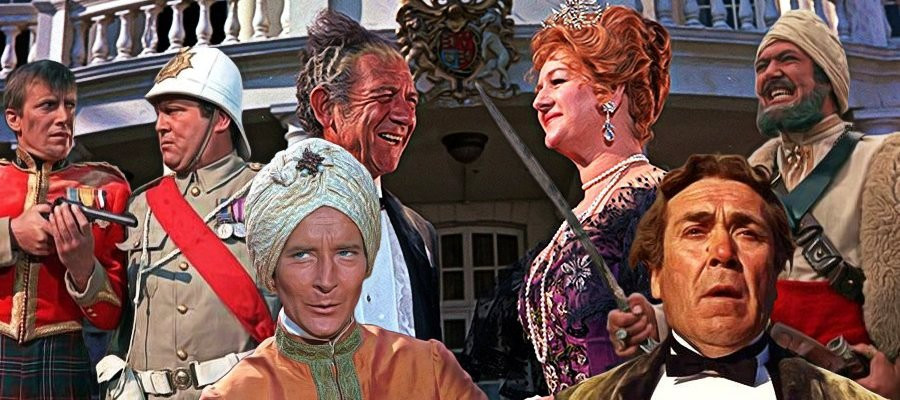
Carry On Up the Khyber
Review: John Winterson Richards
Considered by many the best in the Carry On series, Carry On Up the Khyber certainly represents the franchise at its very peak. They were still prepared to spend some serious money on the production, almost a quarter of a million pounds, even if they were also still penny pinching where they could, and the whole First Team of the regulars, with the exceptions of Hattie Jacques and Jim Dale, are on parade. Scriptwriter Talbot Rothwell deploys some of his best lines, as well as his most daring, and the characters' names are a particular joy. According to the fan website "The Whippit Inn" it is the Carry On you should show to a friend who has never seen one. We can only bow to their expert opinion.
While the Rank Organisation finally understood the power of the brand they acquired and incorporated the Carry On in the title from the start, it seems they still had little grasp of what made it so popular: apparently they wanted to call it "Carry On In the Regiment." Hmm...
Previous historically themed Carry On films were satires more of specific cultural depictions of history, particular novels and films, than of history itself. Carry On Up the Khyber by contrast takes direct aim at the history books, and in particular the "Myth of British Invincibility" in India. This "Myth," which was supposed to explain how a few thousand Britons kept millions of locals under their control, is itself a myth: the fact is that the British Empire-builders, like the Romans on whom they modelled themselves deliberately and self-consciously, were actually defeated quite often, but, like the Romans, the secret of their success was that they kept coming back. The Indians themselves were fully aware of this. The script also seems to reference the false rumours which led to the Great Mutiny of 1857. Once again one cannot escape the impression that Rothwell did a bit of serious research before writing his supremely unserious script.
This is not to say that it was not influenced stylistically by previous popular depictions of the Raj, most notably Kipling and the Hollywood "Easterns." Moreover, the final battle sequence clearly owes a lot, as do most subsequent depictions of point defence, to the then fairly recent Zulu, from which the props department reused the webbing and pith helmets.
The "stiff upper lip" tradition at which it pokes most fun is, however, no Hollywood invention. It was real. The novelist George MacDonald Fraser, who served in India himself, cites the case of a Brigadier who once gave a subordinate officer a mild reproof - which probably scarred him for life - for running out of a building ahead of him during an earthquake. Much of what was actually said and done by the Victorians can seem beyond satire to more openly emotional generations, but the ability to stay calm in a crisis and, er, carry on with established procedures in the face of probable death is part of what it takes to build the Greatest Empire the World Has Ever Seen.
The notion of generational shift is never far from the surface in Carry On. The films can be read as a gentle mockery of the pomposity of the past but there is also an element of tribute to something irreplaceable that was fading away in the Swinging Sixties. It is worth remembering that, unlike younger satirists of that increasingly cynical decade, Rothwell, director Gerald Thomas, and most of the older male members of the cast had seen some sort of service in the Second World War - Peter Butterworth having befriended Rothwell when they were prisoners of war together. The Carry On team were therefore laughing at what they knew from personal experience. That makes all the difference.
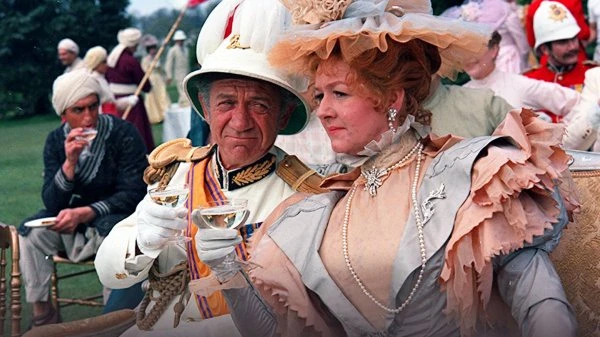
The basic scenario is also surprisingly authentic, an uneasy balance of power in a frontier province between the British authorities, a local Hindu prince, and the unruly Muslim hill tribes. It was a drama played frequently during the real life history of the Raj. Here Britain is represented by Sir Sidney Ruff-Diamond (Sid James, of course), the semi-independent but resentful local prince is the Khasi of Kalabar (Kenneth Williams), and the tribesmen are the fearsome Burpas led by Bungdit Din (Bernard Bresslaw, in another of his ethnically versatile roles that would not be allowed today - but then the list of what would not be allowed today in this film is so long that there really is no point in starting on it).
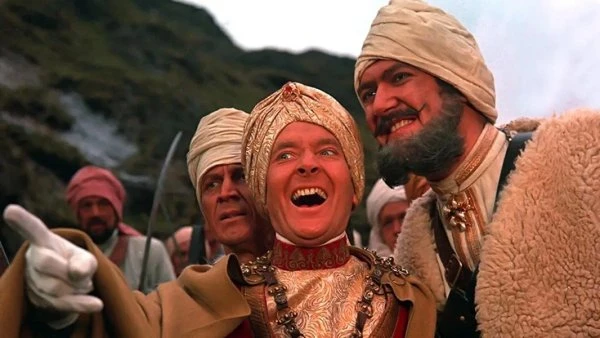
The fragile peace is maintained only by the reputation of the 3rd Foot and Mouth, the famous "Devils in Skirts" - or rather it is until Private Widdle (Charles Hawtrey) loses a vital piece of military equipment that threatens to set India aflame. Roy Castle (later the beloved host of Record Breakers) as his superior officer assumes the heroic lead usually played by Jim Dale, for whom the part was written but who was unavailable due to a stage commitment. Where Dale always brought a slightly subversive edge to his characters, Castle, in probably his best remembered feature film role, plays it straight, which actually better suited to someone called Captain Keene. Terry Scott returns to the series for the first time since Carry On Sergeant as Sergeant Major McNutt. Classic English rose Angela Douglas is Kenneth Williams' very unlikely daughter, Princess Jelhi, in her fourth and final Carry On. Peter Butterworth both chews the scenery and steals every scene as libidinous missionary Brother Belcher.
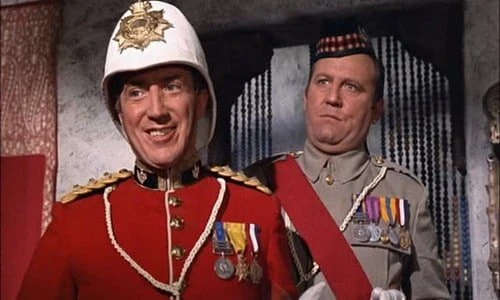
Joan Sims is for once given a proper character arc in what is actually a rather touching subplot about the healing of an unhappy marriage. One keeps being reminded of how good she was. Other familiar faces include Julian Holloway as Sir Sid's ADC, Wanda Ventham as the Khasi's Chief Wife who feels obliged to make up for a wrong he does, Alexandra Dane as "Busti," Angie Grant predictably as a "hospitality girl," future "Hai Karate" girl Valerie Leon in her first Carry On as another "hospitality girl," John Hallam as "Burpa on Rooftop," and Peter Gilmore as Widdle's ill fated best friend, Private "Ginger" Hale, whose final scene does indeed suggest he has been drinking something fizzy. Patrick Allen again provides a stately "voice over" that makes the whole thing sound almost official. Cardew Robinson plays a fakir whose dismissal gives Bresslaw one of the most perfectly delivered lines in the whole series (James and Williams also get at least one apiece here). The role was apparently offered first to Frankie Howerd, who would probably have never let Bresslaw get a word in edgeways.
The production got to an exotic location further than any Carry On had gone before, North Wales, the eponymous Khyber Pass being played by the Watkin Path on Snowdon. A commemorative plaque on the Path commemorates the fact. This is not as ridiculous as it sounds: Himalayan expeditions have often trained in Snowdonia because there are similarities. The final battle was, however, filmed much closer to home - the Governor's Residence besieged by the Burpas was actually the administration office building at Pinewood. In what might be the highlight Gerald Thomas' career the fighting was intercut brilliantly with the now legendary dinner scene. This scene took three days to film, not least because everyone kept corpsing, cracking up with laughter at Butterworth.
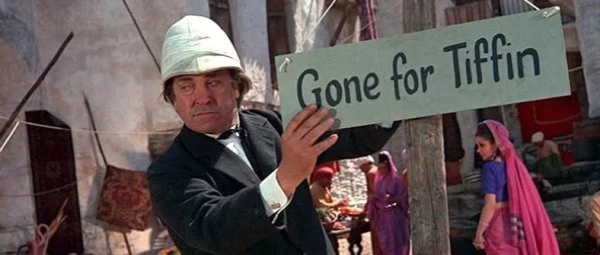
Watching the film almost sixty years on, it really does look as if the whole cast are enjoying themselves in spite of a sometimes difficult shoot. They were all comfortable in their established Carry On personae by this point and generally comfortable with each other, even if there were the usual rivalries and irritations one usually finds when any group of people work closely together over a long period. If there were real problems, they surfaced later. What we are seeing in Carry On Up the Khyber is a team of seasoned professionals at their best.
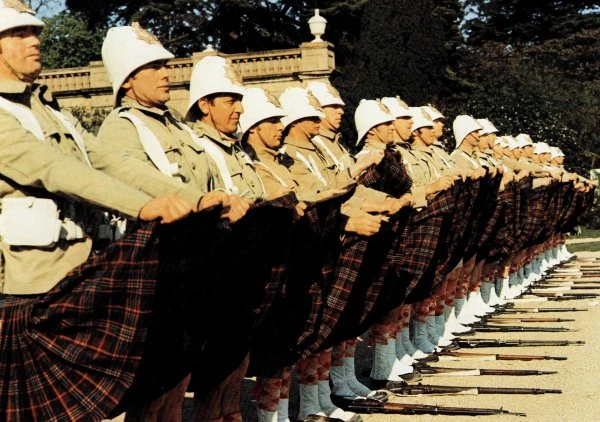
Of course, the irony of any peak is that once one has attained it, one must by definition start immediately back downwards. If the Carry On franchise never reached the same height again, it was simply because there was no way that it could.
Published on May 22nd, 2025. Written by John Winterson Richards for Television Heaven.


